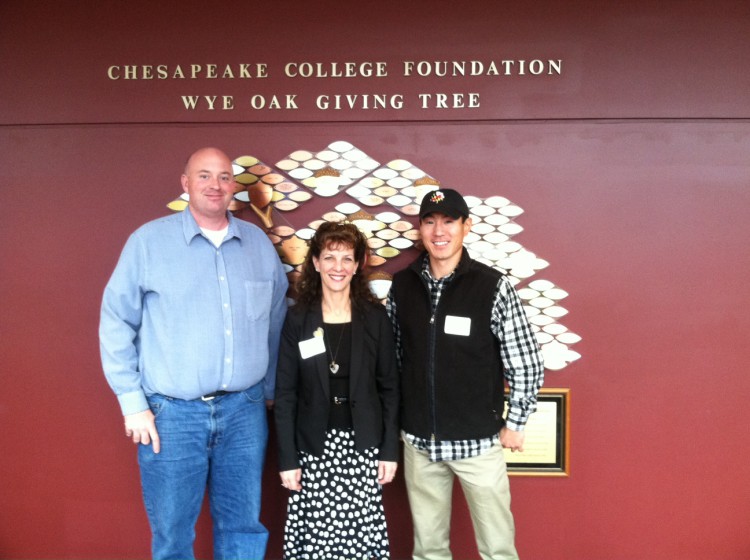In order to prepare stakeholders for the implementation of Maryland’s revised nutrient trading guidance, the Maryland Departments of the Environment and Agriculture sponsored the Nutrient Trading Symposium in collaboration with the Harry R. Hughes Center for Agro-Ecology, Chesapeake Bay Foundation, and Maryland Grain Producers . The symposium was held on Friday, January 8, 2016 at the Chesapeake College Todd Performing Arts Center in Wye Mills, MD. NCCOS and partners attended to assess how ecosystem services of shellfish aquaculture might be included in Maryland’s program.
Maryland’s Nutrient Trading Program is a public marketplace for the buying and selling of nutrient (nitrogen and phosphorous) credits. The objectives of the meeting were to build trust and partnerships among the diverse stakeholder participants, explain the importance of nutrient credit trading in achieving Bay Restoration goals more quickly at less cost thantraditional programs, and to provide a comprehensive background for how a trading program will work.

Symposium speakers addressed the basic concepts of trading and its rolein Bay restoration efforts, including accelerating nutrient and sediment reductions, lowering the high costs of reaching and maintaining loading caps, providing the funding for conservation practices, and generating supplemental farm income along withother financial benefits.
The 250 symposium participants consisted of: County Watershed Implementation Plan Teams; federal agencies; state agricultural, environmental and planning agencies; university and academic researchers; agriculture sector stakeholders (farmers, bankers, industry, association representatives); national, state and local environmental groups; and lawyers.
For more information contact Suzanne Bricker.
